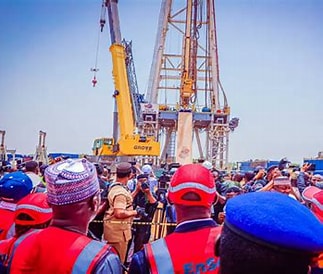Over 3.5 billion barrels of crude oil and condensate reserves remain locked in undeveloped fields across Nigeria, a new report by the Nigerian Upstream Petroleum Regulatory Commission (NUPRC) has revealed.
At the current average global oil price of $65 per barrel, these reserves are valued at about $227.5 billion approximately N341.25 trillion at the exchange rate of N1,500 to a dollar.
This figure is more than six times Nigeria’s 2025 national budget of N54.9 trillion. Analysts estimate that such funds could finance over two million primary healthcare centres at N150 million each, or construct five million classroom blocks at N65 million per block. It could also fund 413,000 kilometres of road at an average of N825 million per kilometre.
Nigeria’s 2025 budget carries a deficit of N13.08 trillion, with N13.64 trillion allocated for recurrent expenditure, N23.96 trillion for capital projects, N14.32 trillion for debt servicing, and N3.65 trillion for statutory transfers.
The country’s total public debt stock rose to N149.39 trillion as of March 31, 2025, reflecting a 22.8 per cent increase compared to N121.67 trillion recorded in March 2024, according to the Debt Management Office.
The report noted that Nigeria’s over-reliance on oil revenues and failure to develop idle oil fields have compounded borrowing pressures.
Despite huge reserves, the nation continues to import refined petroleum products due to persistent refinery challenges and crude shortages.
NUPRC data further showed that about 18.8 trillion cubic feet (TCF) of associated and non-associated gas reserves remain undeveloped.
A breakdown of development status indicated that:
-
31.65% of deepwater oil and gas fields remain undeveloped.
-
Only 12.25% are classified as developed.
-
5.10% are in the pipeline with development in view.
In deep offshore terrain alone, about 52% of fields are undeveloped, while 25% are in the development stage and 23% remain pending.
As of January 1, 2025, deepwater contributed roughly 19% of Nigeria’s oil reserves and 12% of its gas reserves, yet 65% of discovered fields are still idle.
Speaking at the 50th anniversary of the Nigerian Association of Petroleum Explorationists (NAPE), NNPCL Group CEO, Bayo Ojulari, stressed that crude reserves in the ground hold no economic value until extracted.
Our oil in the ground doesn’t matter to anybody. It has to convert to cash for the country to benefit. We’ve had oil sitting idle for so long it’s time to get it out, he said.
NAPE President, Johnbosco Uche, urged the NUPRC to conduct annual bid rounds to attract investors, noting that Nigeria’s Niger Delta basin remains one of the most prolific globally.
He argued that with the right seismic data and investor-friendly policies, the country could grow its reserves to 40 billion barrels.
According to the NUPRC, Nigeria has 220 unlicensed oil blocks scattered across its basins, including:
-
59 in the deep offshore terrain,
-
41 in the Benue Trough,
-
40 in the Chad Basin,
-
28 in the Sokoto Basin,
-
16 in the Bida Basin,
-
13 in the Anambra Basin,
-
8 each in the Benin Basin and the onshore Niger Delta,
-
and 7 in the offshore Niger Delta.
The Commission clarified that these blocks are not abandoned but awaiting concessions through periodic licensing rounds under the Petroleum Industry Act 2021.
Minister of State for Petroleum Resources (Oil), Senator Heineken Lokpobiri, recently warned that oil blocks left idle for decades would be withdrawn from operators.
We cannot continue to have assets sitting idle for 20 to 30 years. If you are not utilising an asset, it neither adds value to your books nor to us as a country. Such assets will be reassigned to investors ready to produce, he said.
Industry experts insist that Nigeria must urgently embrace technology-driven exploration and create an attractive investment climate if it hopes to unlock its vast reserves, reduce borrowing, and boost revenue.



